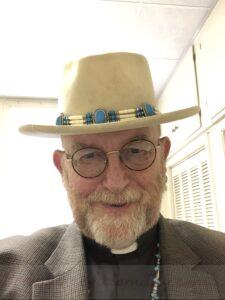Extended ESFP Profile stands for extroverted sensing feeling perceiving. The Competence transactional role for the ESFP personality type is Initiator. Its corresponding ministry role is Ministry Leader in the Community.
INITIATOR
The Initiator is an entrepreneur and an opportunist. Lowen uses the sentence “Signal the Match.” to describe this role. The Initiator is watching for a match. Lowen’s prime example is a salesperson. What is it about the customer that matches the product? When the salesman gets the answer, he signals the match and says, “This is just the one for you!”
MINISTRY LEADER IN THE COMMUNITY
The Ministry Leader in the Community is able to find the match between the needs of the community and the desires of the people to help. He or she then raises the flag and presto others say “This is the project we have been seeking!”
One might guess to find ESFPs in leadership positions of ecumenical organizations. They might head up a local fund raising campaign or work for the United Way.
The Talent portion of the Work mode of the ESFP consists of the transactional role of Classifier. Its corresponding ministry role is Evangelist.
CLASSIFIER
The Classifier is one who makes choices between dichotomous situations of control. In a literal sense, this is concerned with control of the body. Thus some classifiers are athletes. Lowen gives the example of a baseball player who must decide if a pitch is in the strike zone and how to control his body to hit the ball. However, another prime example of a classifier is the politician. The politician is constantly choosing what action to take. Shall I vote yes or no? Shall I accept this invitation or go to that banquet? Shall I endorse this candidate or denounce that project? Shall I shake hands or smile for the photo opportunity? Administrators are also Classifiers. They must make decisions of control all the time.
EVANGELIST
I have mapped the ministry role of Evangelist to correspond with Classifier. Evangelists wonder how to control the situation to help move people from one category to another. What can I do to help the lost become found; the dead in sin come to new life? Shall I cross over to Macedonia or stay in Judea? Shall I speak in Madison Square Garden or Central Park? Shall I talk about your life or speak of Biblical characters? The Evangelist has a good track record for getting the right answers to these control questions.
The Play mode compliments the Work mode for all types. The connection can easily be seen in the example of the ESFP. The ESFPs play mode has the transactional role of Perceiver in the Perseverance position. Its corresponding ministry role is Spiritual Warrior.
PERCEIVER
The Perceiver notices harmonies and makes intuitive guesses regarding what is behind these harmonies. The reverse is also true. They make guesses about disharmony as well. Data comes from remote input, the sixth sense and smell. It is often difficult to know just how a Perceiver knows. The accuracy of their observations is confirmation. Professionally, one finds Perceivers in a variety of fields. People oriented professions, however, predominate: counseling, teaching, social work, and the ministry.
SPIRITUAL WARRIOR
The Spiritual Warrior uses the Perceiving role to see into the spiritual realm. It takes this special kind of perception to be aware of powers and principalities.
An ESFP Ministry Leader/Evangelist can obviously make good use of a Perseverance transactional role which involves vigilant insight into the spiritual realm and a tireless willingness to do battle with powers and principalities.
The Relax position of the Play mode for the ESFP has the transactional role of Verbalist with the corresponding ministry role of Worship Leader. These two are obvious assets to the primary work mode of Ministry Leader/Evangelist. If one is going to present the Gospel in an effective manner it helps to be a good orator.
VERBALIST
The Verbalist has the ability to be articulate. He knows how to say the right thing and say it well. This is the capacity of the orator, the preacher, the lecturer, actor and diplomat. The focus is not so much on what is said, but how. It is the capacity of people who would rather speak than listen.
WORSHIP LEADER
Words are very important in Worship. It is the Worship leader who pronounces them. This is most obviously the case for the preacher. It is equally true when reading prayers or speaking them extemporaneously. The worship leader leads the congregation. He speaks to God for them and speaks to them for God. It is an awesome responsibility and takes the capacity of a good verbalist to do it. The ESFP Evangelist has this role in his Relax position. Therefore, he or she speaks the words of God to people in an unstilted, easy flowing manner. In part, the medium becomes the message. Good speech proclaims Good News.
The Toil portion of the Challenge mode for the ESFP has the transactional role of Molder. Its accompanying ministry role is Make the Church Be Jesus.
MOLDER
The most obvious professions for a Molder is that of sculptor, carpenter or other craftsmen. However, they might also have less concrete occupations. They might mold facts and institutions, instead of clay or wood.
MAKE THE CHURCH BE JESUS
In the church Molders might indeed be craftsmen and artisans. However, they will also be concerned that the church, as an institution, act as they think Jesus would act. They will do what they can to tinker with the structure of the institution to shape it, so that it can respond to its members and society in what they consider to be a more Christ-like manner. This may vary, depending on their theological background and interest. However, they will be the person who is appalled if someone is turned away because they were improperly dressed. They might strive to set up a soup kitchen, a health clinic, or fix up a room where the homeless could rest and cleanup.
The ESFP will experience these activities as challenges. He will deem them important, but not turn to them with ease. The Serendipity portion of the Challenge mode may give them an opportunity to act upon their concern, especially when they experience such opportunities as God given calls to action. The Serendipity portion of Challenge for the ESFP, includes the roles of Organizer and Social Justice Program Developer.
ORGANIZER
The Organizer is more interested in how things are done, than he is in the results. Neatness, order and efficiency are important. They are the world’s great systematizers. They make good secretaries and craftsmen. They are programmers and administrators. They accept responsibility and follow through with painstaking and thorough effort. They are the guardians of time-honored institutions.
SOCIAL JUSTICE PROGRAM DEVELOPER
The Social Justice Program Developer is aware of the inequities in society and seek to address them. They put their organizational skills together with their concern for what is right.
The ESFP Initiator/Ministry Leader in the Community may find that in their job as head of an ecumenical organization or voluntary association, an opportunity presents itself for the community to address a particular issue of social justice. Perhaps there is a critical need for a homeless shelter. Maybe there is an epidemic of spousal abuse. Perhaps the local investigative news channel has uncovered an insidious case of red lining. The ESFP may seize upon this event or need as an opportunity to help make the collective Church of the community be Jesus’ Body to combat this evil (Spiritual Warrior). Furthermore, he or she might kick off the campaign with a worship service that includes a call to repentance and faith in Jesus Christ (Evangelist).
The Creativity mode is the most unconscious. The Lock position for the ESFP includes the transactional role of Conceptualizer and its corresponding ministry role of Promoter of Discipleship.
CONCEPTUALIZER
Conceptualizing involves visual information processing. This role finds structure in logic. Professions such as architecture, and systems design use the Conceptualizer role.
PROMOTER OF DISCIPLESHIP
A discipline is a structured approach to living. The Conceptualizer may want to innovate new systems, but he would like others to follow them. The Promoter of Discipleship is interested in making better Christians. They have drive toward constant improvement of everything. These are the ‘better idea’ people of the typological world. Everything – words, plans, designs, ideas, even people – has room for improvement. The ESFP turns his attention upon the wider community. However, as Lowen suggests the Creativity mode reveals the hidden agenda for each type. Therefore the motivation behind all that community work and evangelism is a desire to see churches filled with committed disciples.
The Key portion of the Creativity mode for the ESFP includes the roles of Theoretician and Theologian.
THEORETICIAN
The Theoretician finds the pattern in strategies. This might be in theoretical physics or on the battle field. Theoreticians can be mathematicians or philosophers. They organize ideas. They rely on thinking to expand principles into logical consequences.
THEOLOGIAN
The theologian finds the patterns in the Bible and applies them to life. The theologian looks at the Bible and says “I discern that God has done this and in the history of the Israelites and therefore the resulting pattern shows us that God is loving and desires to have a covenental relationship with us today.”
The ESFP may find periodic retreats from his extroverted Work mode into the silent solitude of private Bible study can be most refreshing.
SPIRITUAL GIFTS
The ESFP should look for assistance in the following gifts of the Spirit. The gifts of helps, mercy, evangelism, physical healing, and hospitality will be active in the Work mode. However, these may be viewed or experienced more as natural talents than spiritual gifts. An attitude of humility and gratitude can enhance their spiritual effectiveness. This will be true in the Play mode, but to a slightly lesser degree. Here the ESFP might anticipate an experience of the gifts of tongues, interpretation of tongues, prophesy, pastor, exhortation, and emotional healing.
In the more unconscious Challenge mode, the ESFP may find the Lord moving in his or her life through the spiritual gifts of administration and service. Lastly in the Creativity mode, and perhaps most importantly, the ESFP may experience wisdom, discernment, faith and knowledge. These will likely be viewed as the most Godly of the gifts. Because of their unconscious nature the ESFP will have to exercise greater will to accept them.
For a complete explanation of Personality Type see my discussion of How to Understand People click here.
For more specific information on ESFP click here
To read Walter Lowen click here.
Check out the rest of the site/Click here.

